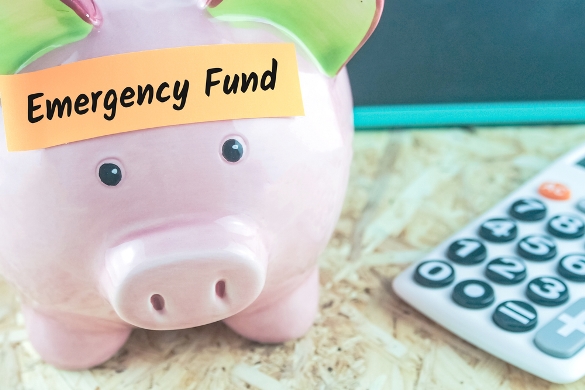When you live in a beautiful island paradise, it’s easy to forget that disaster can strike at any moment. But the reality is that it can. To prepare for the worst, you need to build an emergency fund. That way, when disaster strikes, you’ll have the resources needed to get back on your feet.
Do you need an emergency fund if you have insurance?
Insurance is essential because damages to your car or home typically cost too much for the average person to pay out-of-pocket. For example, to repair your car after a simple fender bender can cost $2,000 or more. And, if a person is seriously injured in an accident, medical costs can easily reach $50,000 or higher. Insurance was designed to share the cost of the loss, so that your out-of-pocket costs are reasonable and limited to the amount of your insurance deductible.
An emergency fund is also necessary, though. Although it shouldn’t be tapped into for anything that comes up – wanting to buy concert tickets does not constitute an emergency, no matter how badly you want to see your favorite band – it is a flexible fund that can pay for unexpected costs, such as:
- Urgent travel needs, for example, to attend a funeral
- Veterinary care
- Insurance deductibles and out-of-pocket expenses
- Job loss
- Car repairs
If you don’t have any extra money set aside for such scenarios, you’ll find yourself having to resort to credit cards. The result will be a pile of debt you might need years to pay off.
How much should you save?
At a minimum, you should have enough in your emergency fund to cover your insurance deductible. Looking beyond insurance, the conventional wisdom is that you should have enough in savings to cover three to nine months of living expenses. That way, if you lose your job or become unable to work, you have a reasonable amount of time to get back on your feet.
As Money Under 30 points out, three months versus nine months is a pretty big difference. The site, which provides a handy emergency fund calculator, suggests thinking about how difficult it would be for you to replace your current income when deciding how much to save.
How Can You Get Started?
For many people, the idea of saving thousands of dollars can seem lovely but impossible. But an emergency fund is not out of reach. Just remember that you don’t need to come up with the entire fund at once. Start saving as much as you can, and start saving today.Go to your bank and establish a savings account dedicated to your new emergency fund. Pledge to set aside a certain, reasonable amount each month, and consider arranging for automatic transfers from your checking account to help you stick to your plan.
Go to your bank and establish a savings account dedicated to your new emergency fund. Pledge to set aside a certain, reasonable amount each month, and consider arranging for automatic transfers from your checking account to help you stick to your plan.
To reach your goal as quickly as possible, add additional money whenever possible. For example, if your employer gives you bonuses, consider using some or all of the extra money to build your emergency fund.
Of course, in addition to an emergency fund, great insurance is an essential component of all smart financial plans. Contact your FICOH independent agent today to review your coverage and deductibles.

